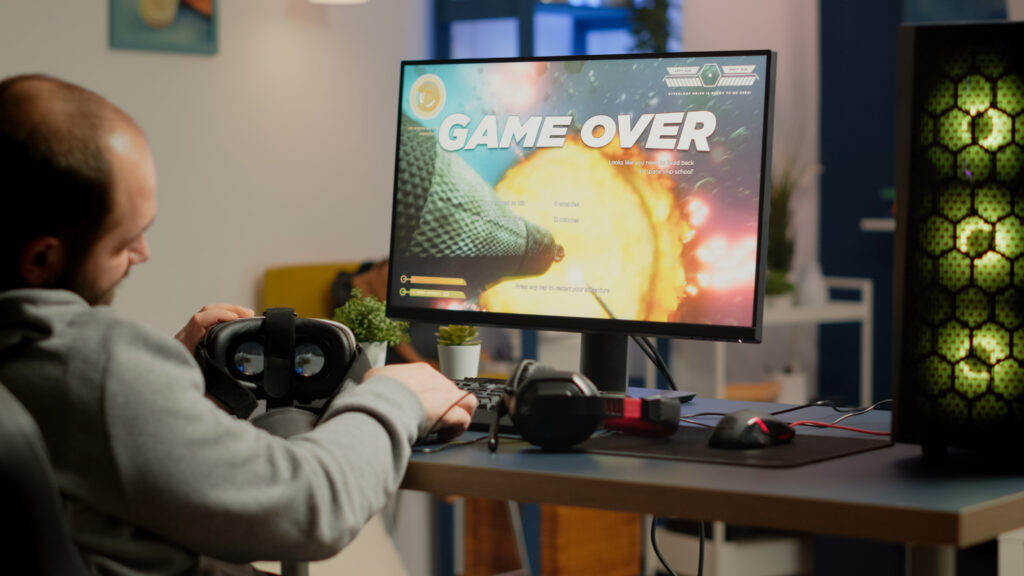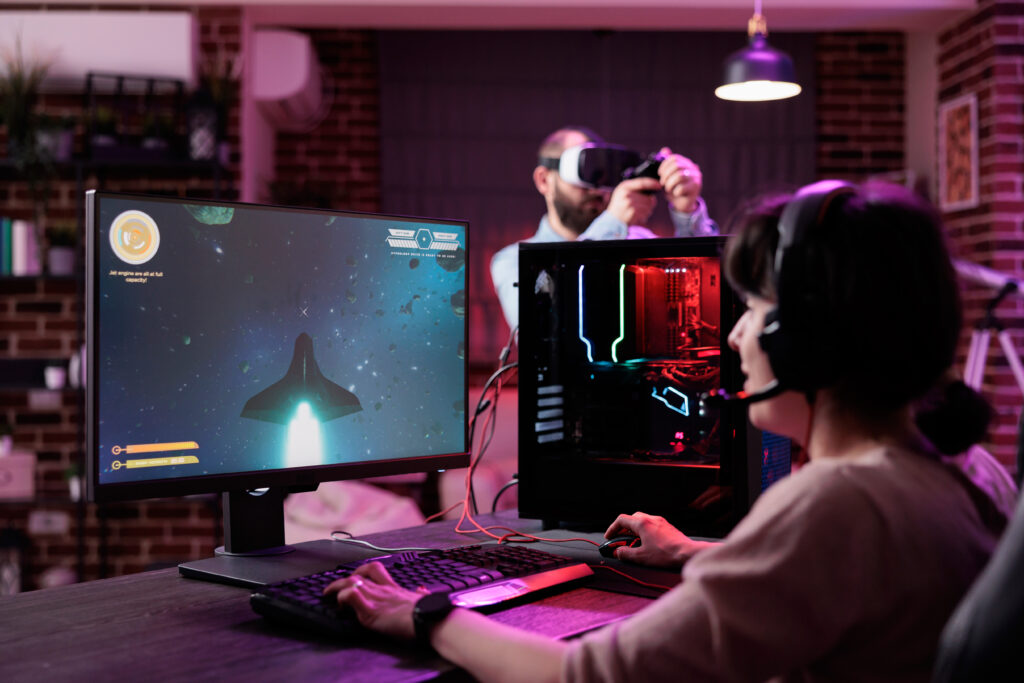The choice between a PC and console gaming is determined by the strengths and weaknesses of each platform. Areas that may define this decision include budget, personal preference, game genres, and performance needs. This article is a pros-and-cons comparison of each type of platform in order to guide you in choosing the one which best serves your gaming purposes.
Performance and Graphics
PC Gaming
PCs generally perform better, especially in high-end setups. A powerful gaming PC enables a user to run games at higher resolutions, like 4K, and maintain better frame rates. Ray tracing is another feature that brings games closer to reality through realistic lighting effects. Also, individual parts such as a graphics card can be upgraded in the future to track advancing technology, though this will be in a more controlled fashion compared to a PC.
Console Gaming
The consoles are designed to provide a standard gaming experience. The gameplay that comes out of them should be smooth and never require hardware upgrades. However, with consoles like PlayStation 5 and Xbox Series X, there are great plays in performance K and up to 120 FPS support; still, nothing is able to beat the kind of graphical fidelity a high-end gaming PC is capable of.
Winner: PC (if performance is a priority)
Game Library and Exclusives
PC Gaming
PC possesses the most extensive library of video games, which include titles like indie versions, strategy games, and other early-access titles that may never find their way to the shelves of their respective console adaptations. Popular storefronts, including Steam, Epic Games, and GOG, host thousands of video games, with many of those being on sale regularly. Additionally, PCs are the main platform for genres such as real-time strategy and simulation games.
Console Gaming
There are a whole bunch of exclusive titles on the consoles that can’t be played on PC. Exclusive, well-liked titles are situated on the PlayStation games, such as God of War and The Last of Us; on Nintendo, they try to focus on older iconic franchises, such as Zelda and Mario; Xbox remains friendly and users by trying to put everything into an ecosystem view under Game Pass, where users can play hundreds of games for a flat fee.

Winner: Tie (depends on your personal gaming preferences)
Ease of Use and Accessibility
PC Gaming
Setting up a gaming PC is also not really for the unversed; it entails some technical know-how, such as installing drivers, optimizing settings, and troubleshooting issues. Plus, not all games run well on every PC without some hang-ups due to the difference in hardware configurations.
Console Gaming
Consoles should be plug-and-play for all. Unplug it, connect it to the TV, insert a disc, download the game, and you’re ready to go. Most updates and optimizations happen automatically and should not require frequent manual trouble shooting. It makes it perfect for casual gamers and users who prefer it simple.
Winner: Console (ease of use)
Multiplayer and Online Experience
PC Gaming
PCs also offer flexibility in the way people play online games since most of them support multi-platforms and offer free access to most multiplayer games. PC gamers also enjoy extensive communities of modding. This aspect gives the multiplayer experience added content. Cheating occasionally affects online gaming on PCs because they are open systems.
Consoles
Consoles can provide online play experiences smoothly using services like Xbox Live and PlayStation Network. Some services, however, do charge for online multiplayer, like Xbox Game Pass or PlayStation Plus. Console multiplayer is also generally safer compared to PC and has fewer cheating reports.
Winner: Console (security and ease of use)
Upfront Cost vs. Long-term Investment
PC Gaming
Building or buying a gaming PC costs more to get started. An average gaming PC might cost anything from $800 to $1500. PCs, on the other hand, give savings down the road since no multiplayer access games need to be paid for, and parts can be upgraded in the future rather than an entire system having to be bought.
Consoles
Consoles are cheaper in terms of front cost, as the most recent models, like PlayStation 5 or Xbox Series X, are estimated to be around $500. However, other expenses accrue over time with its respective online service subscriptions and game purchases that are sold at a premium price because the sales are less frequent compared to PCs.
Winner: Depends (PC for long-term value, Console for affordability)
Game Controls and Customization
PC Gaming
PCs provide the most options for control, including keyboards, mice, controllers, and many peripherals. Players of first-person shooters and strategy games often prefer the precision of a keyboard and mouse. PCs additionally provide almost endless customization on key bindings and mods.
Console Gaming
The controllers for consoles are designed to make the console easier to hold and use; though some current consoles have integrated keyboard and mouse input, by and large, most games are made with the controller in mind, thus setting consoles as great for genres such as racing, sports, and platformers.

Winner: PC (versatility)
Portability and Flexibility
PC Gaming
Desktop gaming PCs are not very portable. Games laptops offer the advantage of portability, though. However, this does not suggest that game laptops can be carried like consoles such as Nintendo Switch. PCs take up dedicated space for monitors and peripherals.
Consoles, like the Switch, are great at portability, allowing for gaming on the go. Of course, larger consoles like the PS5 and Xbox Series X cannot travel, but they are much lighter and easier to set up and transport than a desktop PC. Consoles also mix seamlessly with living room setups.
Winner: Console (portability)
VR and Future Trends
PC Gaming
PCs are leaders in virtual reality gaming, providing access to premium virtual reality headsets like Oculus Rift, HTC Vive, and Valve Index. PCs are also more adaptable to emerging gaming technologies with more flexibility in customization.
Console Gaming
Although improving with PlayStation VR, consoles are still not on par with PC VR. For now, there exists a gap yet to be covered, both performance-wise and in terms of the number of games available. Both are, however, investigating future trends like cloud gaming, which may fill this gap in time.
Winner: PC (for VR potential)
Which Should You Choose?
Ultimately, a choice between PC and console gaming is entirely dependent on the individual’s own needs and preferences. If a gaming rig is all about high-end performance, customization, and huge libraries of games, it might appeal to you. On the other hand, if you enjoy the ease of access, titles that are exclusive to the system, and an easy plug-in-and-play experience, you might enjoy a console better.
However, before you take a deep dive, consider your gaming habits, budget, and the types of games you play. Both have exclusive advantages and for some gamers, having both the PC and the console offers them the best of two worlds for themselves.


